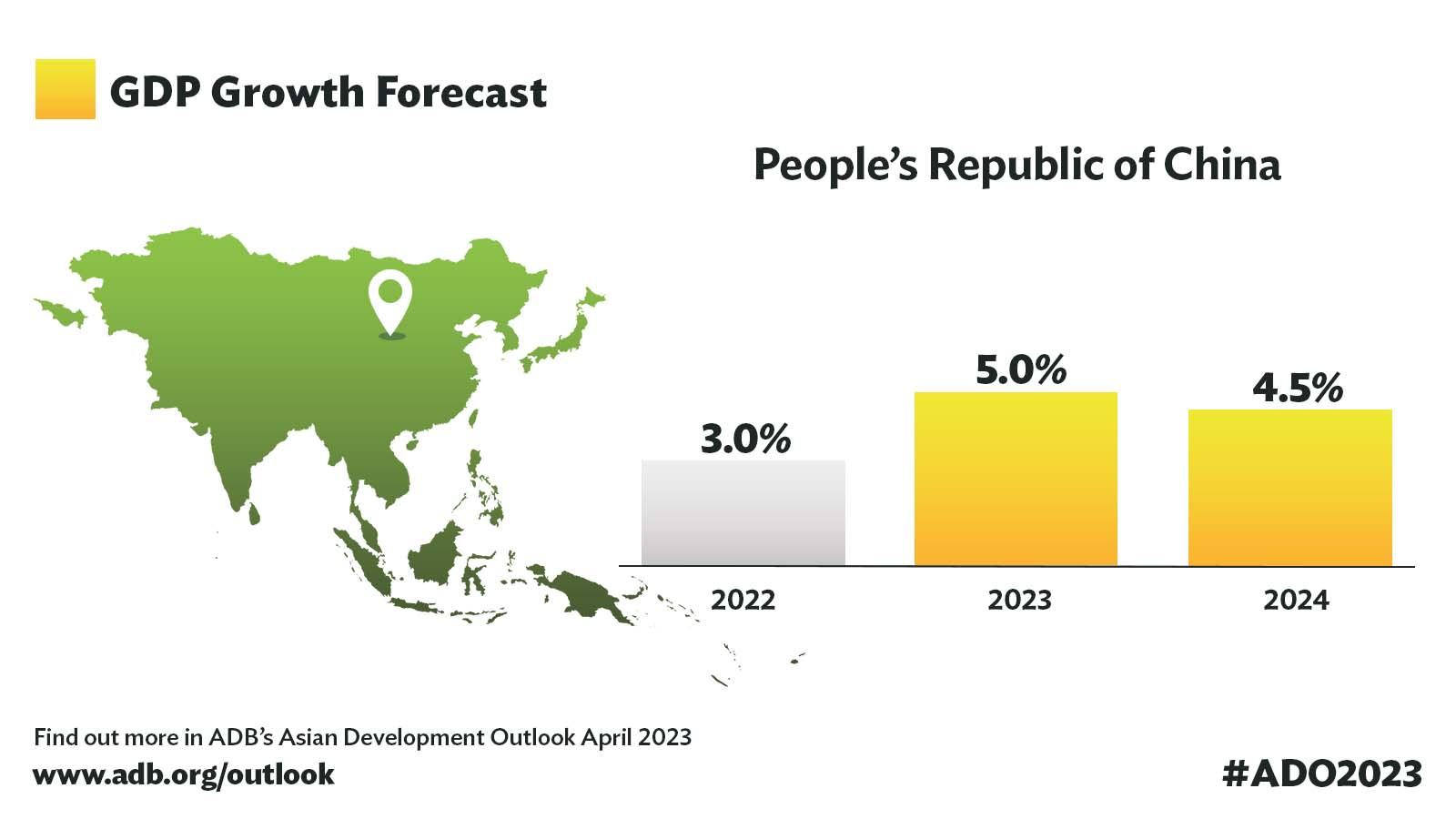PRC Economy Forecast to Grow 5% as Household Demand Recovers
Economic growth in the People’s Republic of China (PRC) is expected to increase to 5% in 2023 following the lifting of COVID-19 restrictions and the recovery of household demand, according to the Asian Development Outlook (ADO) April 2023, released today by the Asian Development Bank (ADB).
Consumer demand is expected to pick up after the lifting of COVID-19 restrictions at the end of 2022. However, the recovery may take time, given the reluctance of households to spend over the past 3 years amid pandemic-related uncertainty.
“Fiscal spending, like infrastructure investment, will continue to be needed in the short run to catalyze economic recovery, in particular since external demand may ease in 2023 as growth in advanced economies cools,” said ADB Country Director for the PRC Safdar Parvez.

Consumer price inflation is expected to stay subdued in 2023 and 2024 as pass-through from higher producer prices has become less likely. Service prices may pick up, driven by higher household demand. Inflation is forecast at 2.2% in 2023 before easing to 2.0% in 2024, in line with slower economic growth.
External trade is expected to moderate, and capital flows may be more balanced in 2023. As demand from advanced economies softens, exports will likely decline, though from a high base. Weaker exports of consumer and investment goods should restrain merchandise imports, while trade in services should pick up as outbound travel from the PRC resumes.
Boosting long-term potential growth is a policy challenge, calling for structural reform to allocate capital and credit more efficiently, address adverse demographics, strengthen human capital, and raise productivity. Economic growth was trending down before the pandemic. Keys to raising potential growth include state-owned enterprise reform and increasing domestic consumption.
Risks to the outlook include the unpredictability of the COVID-19 virus as new variants could undermine recovery in domestic consumption. Another risk is that the recovery in consumption or in the housing market turns out slower than expected. An external risk is the global economy cooling faster or deeper than expected.
ADB is committed to achieving a prosperous, inclusive, resilient, and sustainable Asia and the Pacific, while sustaining its efforts to eradicate extreme poverty. Established in 1966, it is owned by 68 members—49 from the region.




















































First, please LoginComment After ~